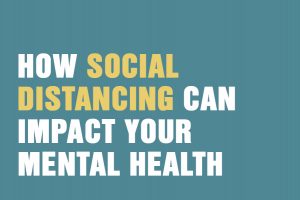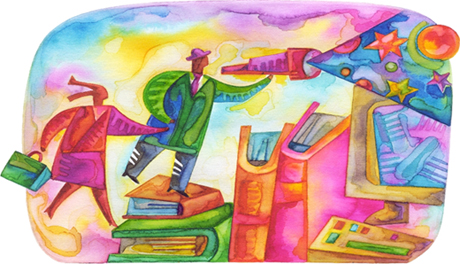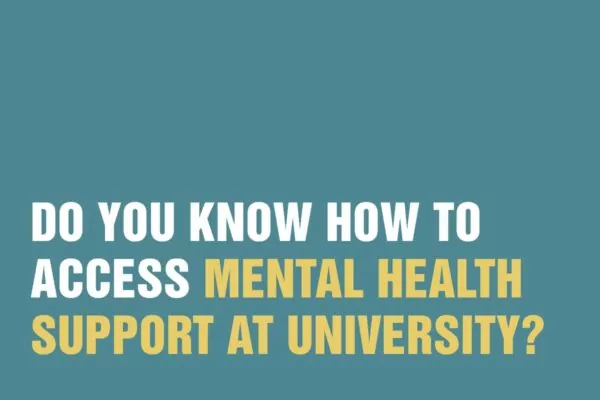Although, thankfully, young children are less likely to develop severe symptoms of COVID-19, the pandemic is still impacting their daily lives and can still take a toll on their mental health. We have all taken steps to mitigate the spread of the virus, however, these steps can have a massive impact on our mental wellbeing, and the mental wellbeing of our children.
Some may react right away, while others may show signs of difficulty later on. How a child or young person reacts can vary according to their age, how they understand information and communicate, their previous experiences, and how they typically cope with stress. Negative reactions may include worrying thoughts about their health or that of family and friends, fear, avoidance, problems sleeping, or physical symptoms such as stomach ache.
Six Things You Can Do To Look After Your Children’s Mental Wellbeing
Modelling
The best way that we can look after our children’s mental health is to model what that looks like. Children and young people very often react to what they see around them, and if they see you dealing with situations calmly and confidently, they are likely to feel more relaxed.
However, depending on the age of your child, it is important not to lie to your child about how you are feeling. You may know that children are very good at picking up on their parent’s emotions. For example, you might have had experiences where you are trying to feign happiness but inside you are actually feeling a pang of sadness and your toddler comes and gives you a big cuddle.
Trying to cover up sadness, anxiety, and fear, to a certain extent, can give children the impression that these emotions are bad and need to be buried. We can model emotional agility to our children by acknowledging our emotions, experiencing our emotions, and continuing on with strength and fortitude. We might say something like “I’m feeling slightly sad at the moment, but that’s okay. It’s okay to feel sad, it won’t last forever. Let’s have a cuddle and then we can get on with this game/activity/movie.”
The more that we do this, the more likely it will be that our children will develop this level of emotional intelligence and be able to be open with us about how they are feeling.
Of course, we don’t only have to do this with negative emotions. We can share with our children when we are feeling happy, excited, or peaceful. We might say something like “I’m feeling very happy that we are spending all of this time together at the moment.”
Explain the Pandemic to Young Children
The most important thing for children and young people, right now, is to feel that they are safe. They want to know that their caregivers can keep them safe, and the best way to help children to feel safe is to be given clear information about what is happening. Talk openly with them about what is happening, and answer their questions as honestly as possible.
Use language that they understand, and make sure you use reliable sources such as the government and NHS websites.
It might be useful to limit your children’s exposure to the media at the moment. Having the news on a constant loop on the TV may lead to increased anxiety in both you and your children. Instead, keep yourself informed by reading updates from reliable sources and watching the news maybe once or twice a day. A complete news blackout is also not helpful as it can leave your imagination to fill in the blanks, leading to increased anxiety.
It is important to not only keep yourself and your children reliably informed but to discuss what this means in language that they will understand. Make time to have open discussions about how the government updates will impact their daily life, such as not going to school, not being able to to to a friend’s house, etc. Young people might get information from friends or social media, and it is important to ask what they have been told and to discuss whether it is reliable or not.
Listen and Acknowledge
On top of explaining and modelling, it is important to provide time and space to listen to your children’s concerns. Don’t try to jump in and placate them too quickly – really take the time to listen to what they are feeling and how they are experiencing this unprecedented situation.
Distress and anxiety may show differently in different children. Some may be able to express this verbally, whereas others might act out behaviourally (they might become more clingy, wet the bed, withdraw, or become aggressive). They might also experience anxiety and distress physically, with stomach aches or headaches.
Create A New Routine
Everyone’s situation at the moment is different, so I’m not going to provide an example daily routine here. However, having a routine gives children and young people an increased feeling of safety during this uncertain time, so here are some tips for creating a new routine.
- Make a loose plan for the day or week that includes learning, playing, and relaxing
- If you are homeschooling, ask teachers what you can do to support this. There are plenty of education tools online too.
- Plan some active activities such as games in the garden, an hour in the park, or following an online fitness video (for example Joe Wicks is doing PE classes online). Keeping your kids active will help with sleep routines, lessen feelings of being trapped, and can boost morale!
- Try to stick to existing bedtimes, morning routines, and mealtimes.
Don’t be too hard on yourself or your kids if the new routines slip up every now and then. This is a strange and stressful time for everyone.
Existing Mental Health Problems
If your child has pre-existing mental health difficulties, speak to their mental health team to discuss any concerns and find out how you can support their mental health at home. You can also update your child’s care and safety plans.
Find out how your child can access their usual support services. It is likely that they will be able to access appointments online or on the phone. Think about how you will access medications. You can call your GP and local pharmacy to see if you can get medication delivered to the house, or whether someone else could collect it for you if you were not able to do so yourself.
Children and Young People with Learning Disabilities
Children and young people with learning disabilities can feel a loss of control in times of uncertainty such as the coronavirus (COVID-19) outbreak. They may need extra words of reassurance, more explanations or adapted explanations about the event, and more comfort from loved ones.
Where possible, it can be helpful to explain any upcoming changes to routine and circumstances before they happen and help them to plan and come up with solutions, such as finding a hobby or doing exercises to relax and cope with anxiety.
If you feel that you would like some professional emotional support during these unsettling times, please contact us on 020 8673 4545 to talk to one of our lovely Front of House team or email [email protected]. We have telephone and online video appointments seven days a week, with low-cost options as well.








